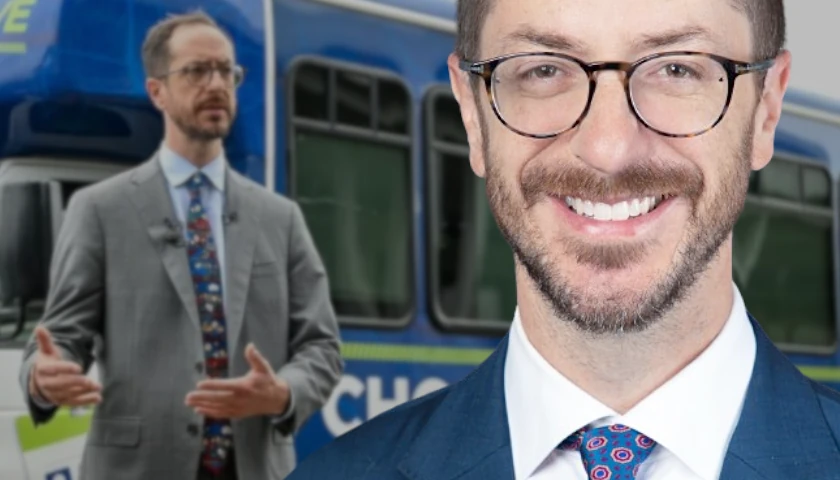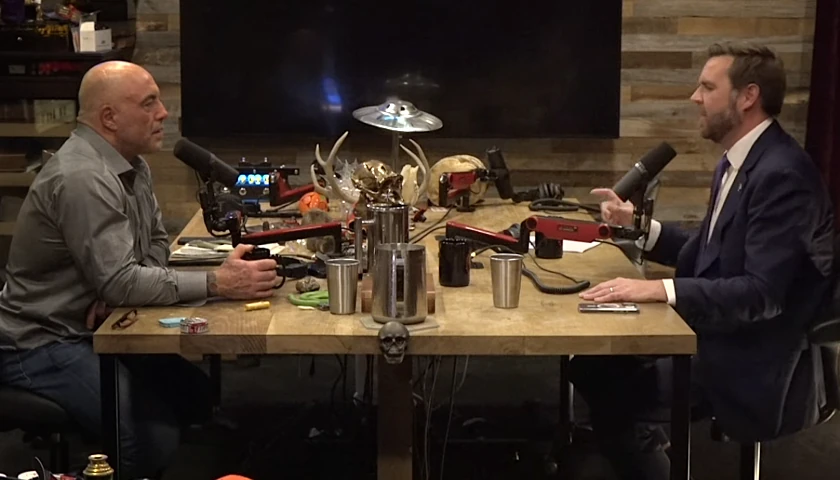Nashville Mayor Freddie O’Connell raised the infrastructure elements of his transit referendum as evidence that even Nashvillians who do not use the city’s bus system will benefit if it passes. He did not acknowledge the possibility the infrastructure portions are illegal under Tennessee law, as alleged by government watchdog Ben Cunningham.
Nashville Scene interviewed O’Connell on Thursday about his transit referendum. When asked about individuals who are only familiar with his proposed improvements to Nashville’s bus system, the mayor turned to the “improved infrastructure” promised in the referendum.
The mayor first told the outlet, “almost everywhere you go, you’re gonna get more green lights out of this program,” highlighting the referendum’s plans for smart street lights to manage traffic flow.
“That’s why we have from the jump called it a transportation improvement program because it’s full of improved infrastructure,” O’Connell told the outlet.
He argued, “there will simply be smarter traffic flow around the entire city that is moving people through safer corridors and intersections.”
O’Connell stated, “If the only thing that you’re looking at in this plan and seeing are the transit elements, the bus elements, there’s definitely more to the story there.”
In addition to creating new, 24-hour bus lines and 12 new transit centers, the mayor is asking voters to approve 86 miles of sidewalk improvements, 35 miles of new bicycle facilities, and 600 new traffic signals to manage the flow of traffic.
O’Connell claims the transit package would be financed using a half-cent sales tax increase and federal money. It is expected to cost $3.1 billion, but the sum is likely to swell to $6.93 billion over the project’s lifetime.
Cunningham , who is the Nashville Tea Party founder, has repeatedly warned O’Connell’s plan violates the 2017 IMPROVE Act, which allows Tennessee communities to levy taxes to pay for a “public transit system.”
Within the IMPROVE Act, a “public transit system” is specifically defined as, “any mass transit system intended for shared passenger transport services to the general public, together with any building, structure, appurtenance, utility, transport support facility, transport vehicles, service vehicles, parking facility, or any other facility, structure, vehicle, or property needed to operate the transportation facility or provide connectivity for the transportation facility to any other non-mass transit system transportation infrastructure, including, but not limited to, interstates, highways, roads, streets, alleys, and sidewalks.”
Metro Nashville Department of Law Director Wally Dietz previously told The Tennessee Star in May the city maintains the referendum “complies in every way with state law,” seemingly arguing the 2017 IMPROVE Act “permits each one of those pieces of the program.”
Cunningham has also warned the federal funding for the referendum could dwindle or disappear, which would likely prompt a property tax increase for Nashville.
– – –
Tom Pappert is the lead reporter for The Tennessee Star, and also reports for The Pennsylvania Daily Star and The Arizona Sun Times. Follow Tom on X/Twitter. Email tips to [email protected].
Photo “Freddie O’Connell” by Freddie O’Connell. Background Photo “Freddie O’Connell” by Freddie O’Connell.









